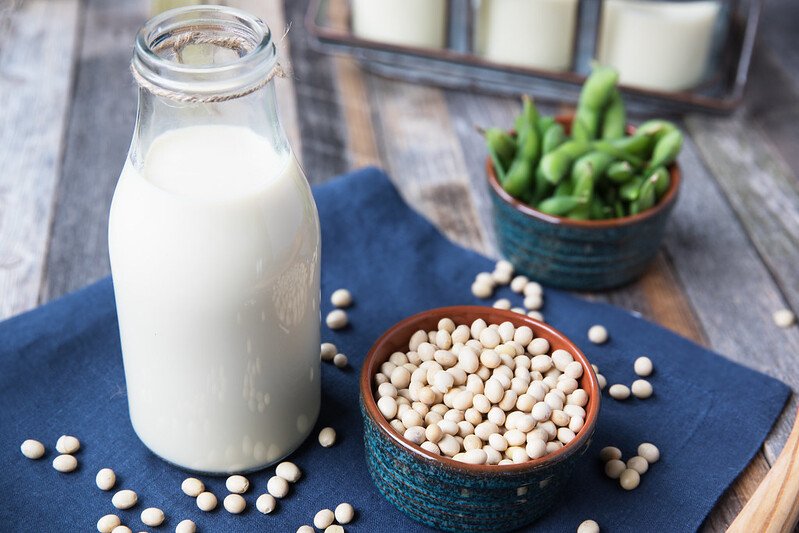Farming practices that reduce resource usage and improve sustainability are contributing to global efforts to reduce carbon in the atmosphere and mitigate the impact of climate change.
Agriculture plays a crucial role in our daily lives and is a key contributor to sustainability. With a focus on protecting the environment, reducing resource usage, and improving sustainability, farmers are making a significant impact in the fight against climate change and supporting circular systems in various industries. From providing food and feed to producing alternative products like biofuel and cosmetics, the benefits of agriculture are numerous and far-reaching. In this article, we will delve into the positive impacts of agriculture, including a focus on food safety, the benefits of plant-based options, and the broader impact of sustainable farming practices.
Agriculture plays a critical role in sustainability by providing the essential food, feed, fuel, and other products that support the lives of billions of people around the world. By adopting sustainable farming practices, farmers help to reduce resource usage and minimize their environmental impact. In addition, the use of plant-based products, such as soy, is contributing to a more sustainable future by providing high-quality protein for food and animal feed, as well as a variety of other applications, from biofuels to cosmetics.
The United Soybean Board is committed to advancing research on renewable options for everyday products and supporting partnerships that encourage the sharing of sustainable advancements throughout the food value chain. The soy industry is making progress in sustainable farming practices, such as cover crops and conservation tillage, that provide environmental benefits and new revenue streams, such as carbon offsets.

The broader impact of soy sustainability includes reducing the use of resources, improving harvests, and exploring new cover crop varieties that could capture more carbon in the soil, leading to additional revenue opportunities for farmers.
Farmers are making a difference in sustainability every day by protecting and preserving farmland and the environment while producing the food, feed, fuel and other products we rely on. The benefits of agriculture and its products go beyond just food production and include supporting circular and sustainable systems in industries outside the food supply chain.
Farming practices that reduce resource usage and improve sustainability are contributing to global efforts to reduce carbon in the atmosphere and mitigate the impact of climate change.
Food Safety In-Depth Focus
Our latest focus on food safety offers insights from global food and beverage experts, including discussions on the USDA’s efforts to combat Salmonella infections and the risks posed by ever-stretched supply chains.
Renewable Plant-Based Options

The United Soybean Board advances research on renewable options for a variety of products and supports partnerships to share sustainable advances throughout the food value chain. The United Soybean Board (USB) is a leading organization dedicated to promoting the sustainable growth and development of the soybean industry. The USB is committed to advancing research on renewable options for a wide range of products, with a focus on sustainable solutions that can help to reduce the environmental impact of these products. To achieve its goals, the USB supports partnerships and collaborations with other organizations and stakeholders in the food value chain, to help share sustainable advances and promote the widespread adoption of eco-friendly practices throughout the food industry. Whether it’s through cutting-edge research, innovative product development, or thought leadership in sustainable agriculture, the United Soybean Board is working tirelessly to ensure a brighter, more sustainable future for all.
The Broader Impact of Soy Sustainability
U.S. Soy farmers are making progress in sustainable farming practices and reducing the use of resources while improving harvests. Advances in sustainable farming practices, such as cover crops and conservation tillage, provide environmental benefits and new revenue streams through carbon offsets. The industry is exploring new cover crop varieties that could capture more carbon in soil and provide additional revenue opportunities for farmers.

Plant-Based Protein to Power the Food Supply
The United States (U.S.) Soy industry plays a crucial role in providing high-quality protein for food and animal feed. As a preferred source of protein and nutrients, U.S. Soy has become a vital component of the global food system. It has become a crucial ingredient in animal feed, providing the necessary nutrients and protein required for healthy animal growth and development. The industry has also expanded its reach to other countries, exporting half of its production to feed systems around the world. The high demand for U.S. Soy both domestically and internationally highlights its significance in the food and agriculture industry.
Renewable Alternatives for Everyday Products
Soybean oil is a versatile product that can be used for biofuel, cosmetics, and other unexpected applications. Soy-based products are finding their way into everyday items such as low-emission fuels, sustainable trainers, and even tyres and asphalt.
Soybean oil is a product derived from soybeans that has a multitude of uses. It is known for its versatility and can be used in a wide range of applications, from biofuel to cosmetics. The versatility of soybean oil makes it an attractive option for a number of industries, as it can be used to create a range of products that are both sustainable and environmentally friendly.
Soy-based products are finding their way into a variety of everyday items, such as low-emission fuels for vehicles, sustainable trainers for fitness enthusiasts, and even tyres and asphalt for roads. These products are a testament to the versatility of soybean oil and its ability to be transformed into a range of useful and practical items. This has helped to increase its popularity, as well as the demand for soybeans, which are used to produce the oil.
Overall, soybean oil is a crucial component in the development of sustainable products, as it provides a renewable alternative to traditional petroleum-based products. This, in turn, helps to reduce greenhouse gas emissions and supports the transition to a more sustainable future.
(Copy Right @ India CSR)























